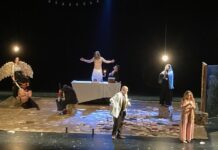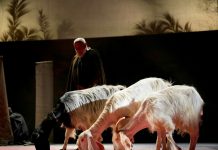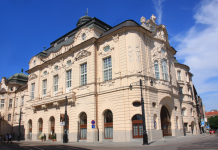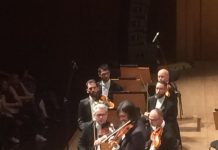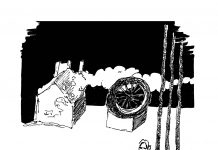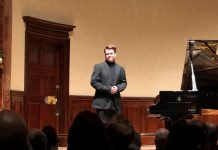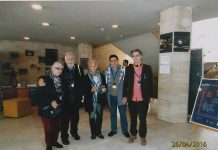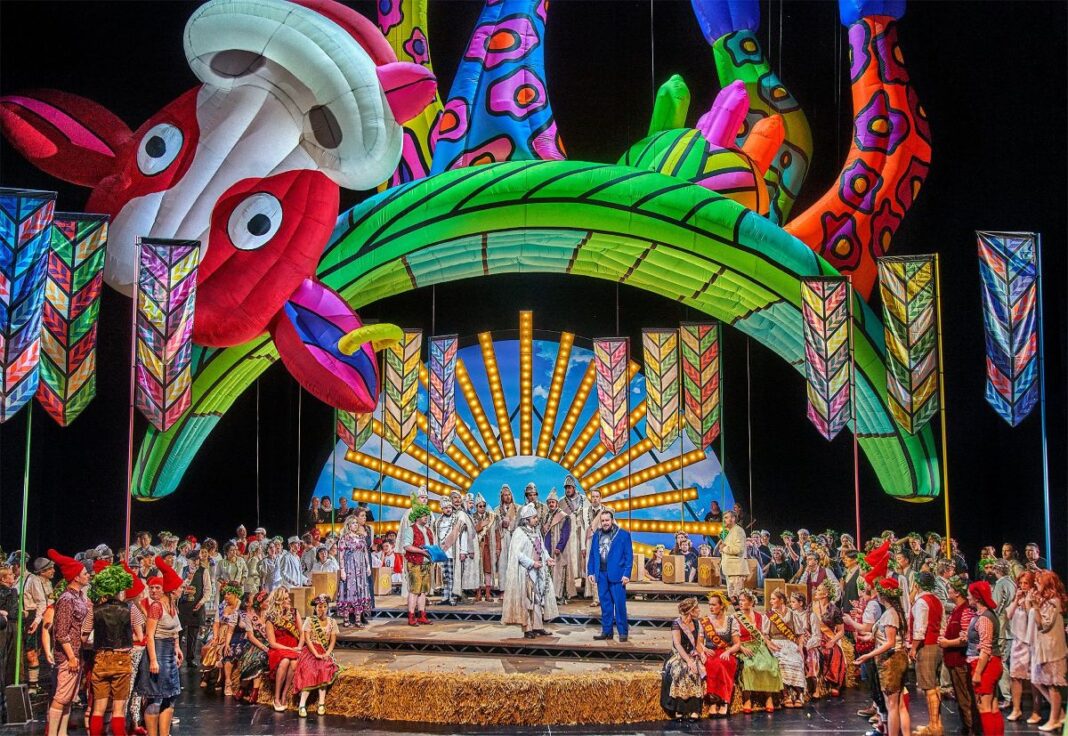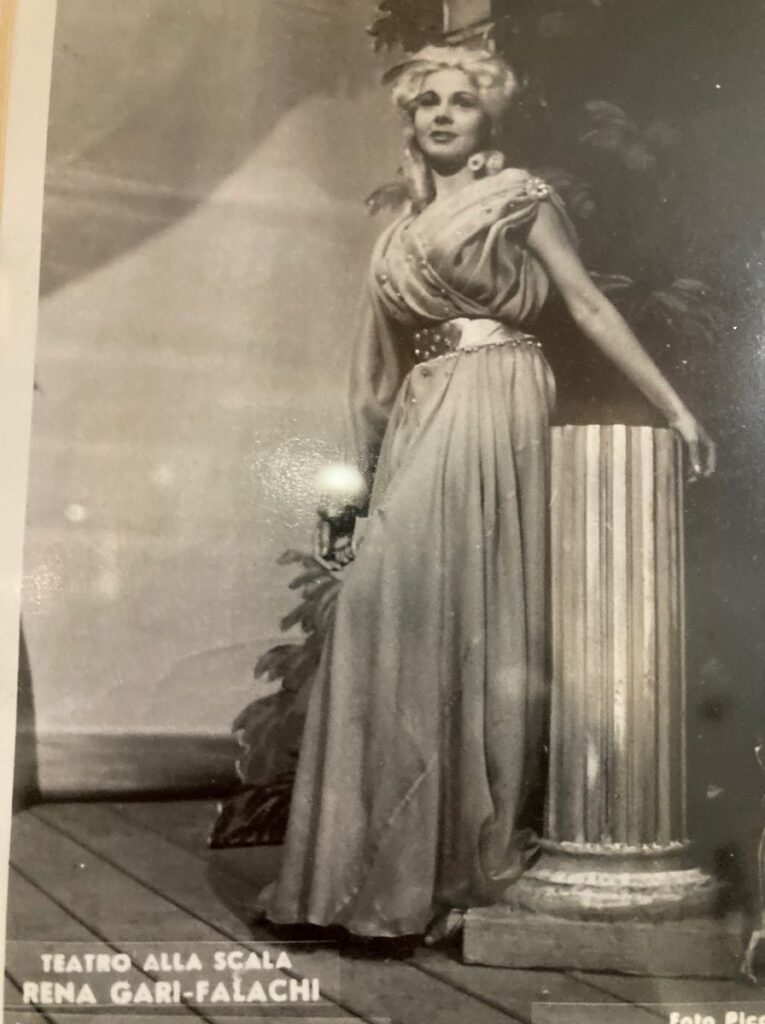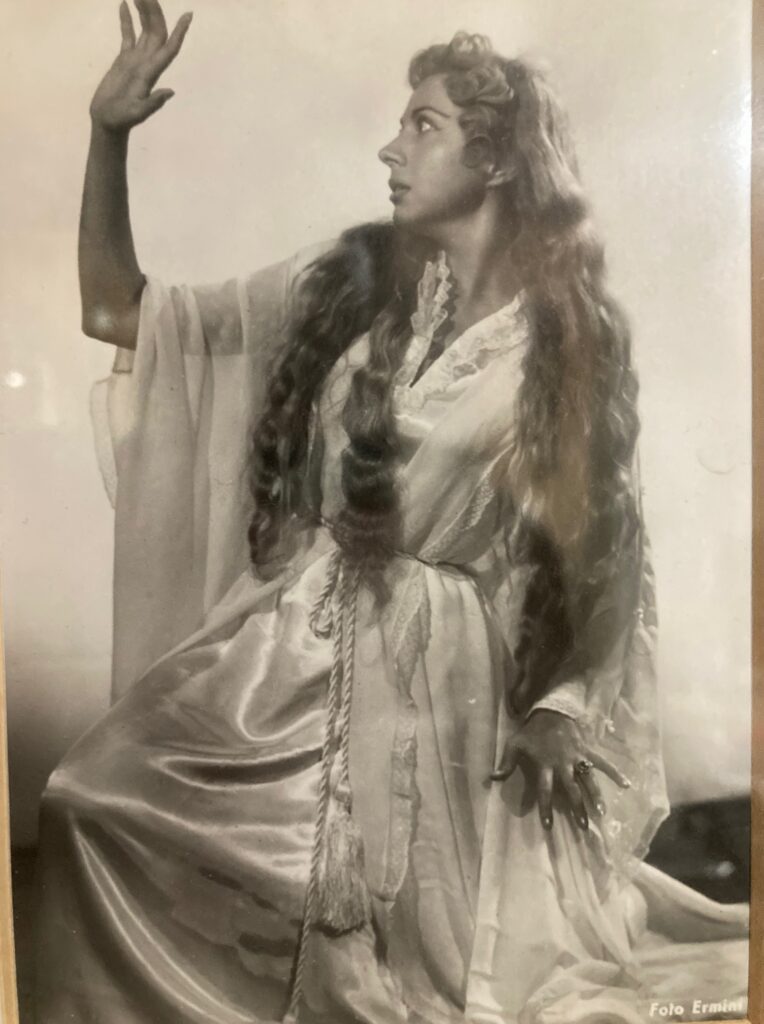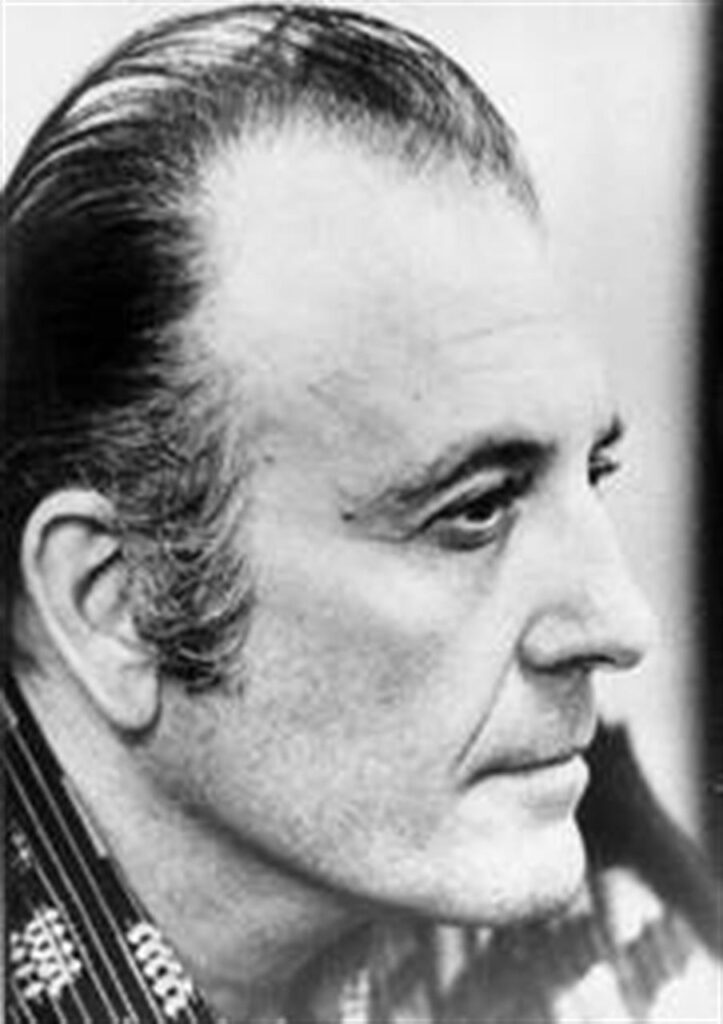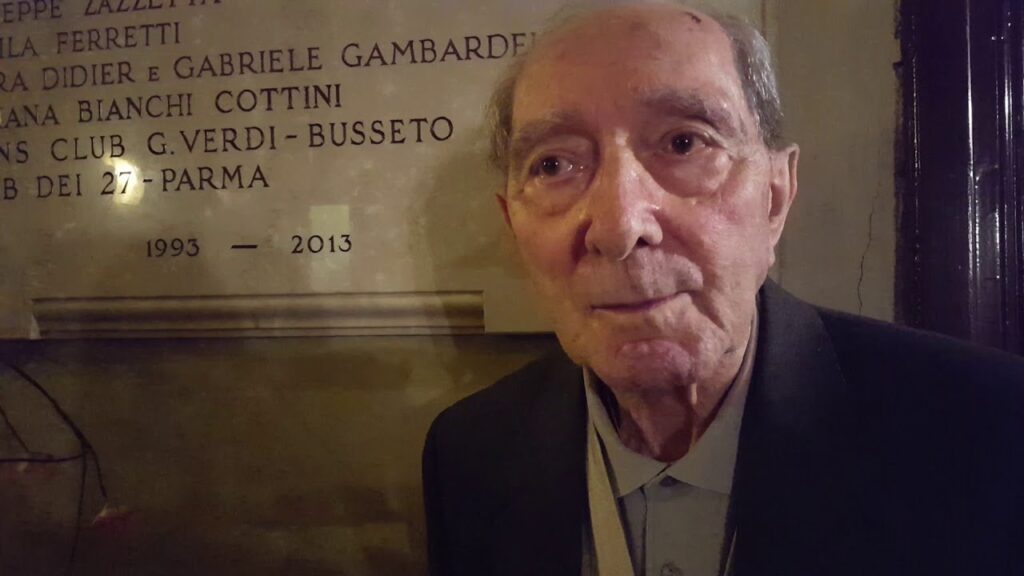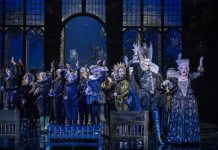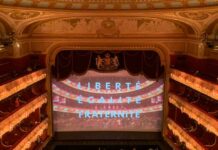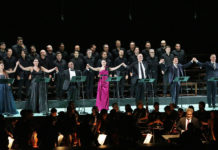PILGRIMAGE TO THE BAYREUTH FESTIVAL 2025
by Dr. Kyriakos P. Loukakos, Music and Lyric Theatre critic – Hon. President of the Greek Drama and Music Critics’ Union (est.1928) – Member of the International Association of Theatre Critics
Gatto on Gatti or a somewhat personal foreword
It was by intervention of bass Nicola Zaccaria, a bosom colleague in performances and recordings of Maria Callas and our close friend for the last decade of his life, that we were acquainted to the distinguished Italian conductor Armando Gatto and his wife, the Greek light coloratura Rena Gary Falachi, still remembered by her contributions to RAI operatic films of the 1950s, an artist whose photos as Lucia and Naiade at the Teatro alla Scala, handed over to us by herself and hanging on our wall of artists, further ascertain a bright career cut short by her own free will to abandon it, in order to devote herself to her singularly chivalrous husband. Every summer the couple stayed for long at their beautiful old-Athens house, at the so called «Kypriathou» neighborhood of Ano Patissia region in the municipality of Athens, and, intermittently, they enjoyed weeks by the sea at the Mati region, 27 km from the capital, a place that acquired a worldwide notorious fame in 2018, due to the deadliest megafire of the recent Greek history. It was a happy coincidence that the hotel hosting the Gatto couple was situated at walking distance of our own humble country house, incidentally a semi-burnt ruin since the disaster, which enabled us to meet frequently, have lunch together under our huge pine tree, as well as talk about music, especially with the Maestro, incidentally the world premiere conductor of Nino Rota’s ballet «La Strada», given at the Teatro alla Scala and further receiving its premiere recording on EMI under his baton. During our lengthy conversations by the usually windy Euboean Golf, in our old time, operatic Italian (he laughed tenderly, especially when we used the expression «ho d’uopo» which he considered an exclusively 19nth century poetic one), we retain a fond memory of his remark on the then rising generation of Italian conductors. Armando Gatto was adamant in his judgement that the most talented one was «il giovane Gat-ti», the double t fully resonating in his low-key noble voice tone in our fond memory…
Inconsistent yet enjoyable Meistersinger
And indeed the «Meistersinger von Nürnberg» performance of August 5th , that opened our 2025 Bayreuth experience, proved to be an interesting one under the sensitive baton of the -incidentally not so young anymore- Daniele Gatti, who invested the piece with the warm-hearted quality it cries for, the same one that is often invoked in order to contradict the all-German national (not nationalistic to our view) message of Hans Sachs’s last address in the opera. His love and attention to the detail of this exquisite score enforced its all-too-present conversational character. Yet we have to admit that we missed a kind of typically German density in his handling of the score, that, in our humble view, epitomizes every idiomatic presentation of this ambivalent «comedy».
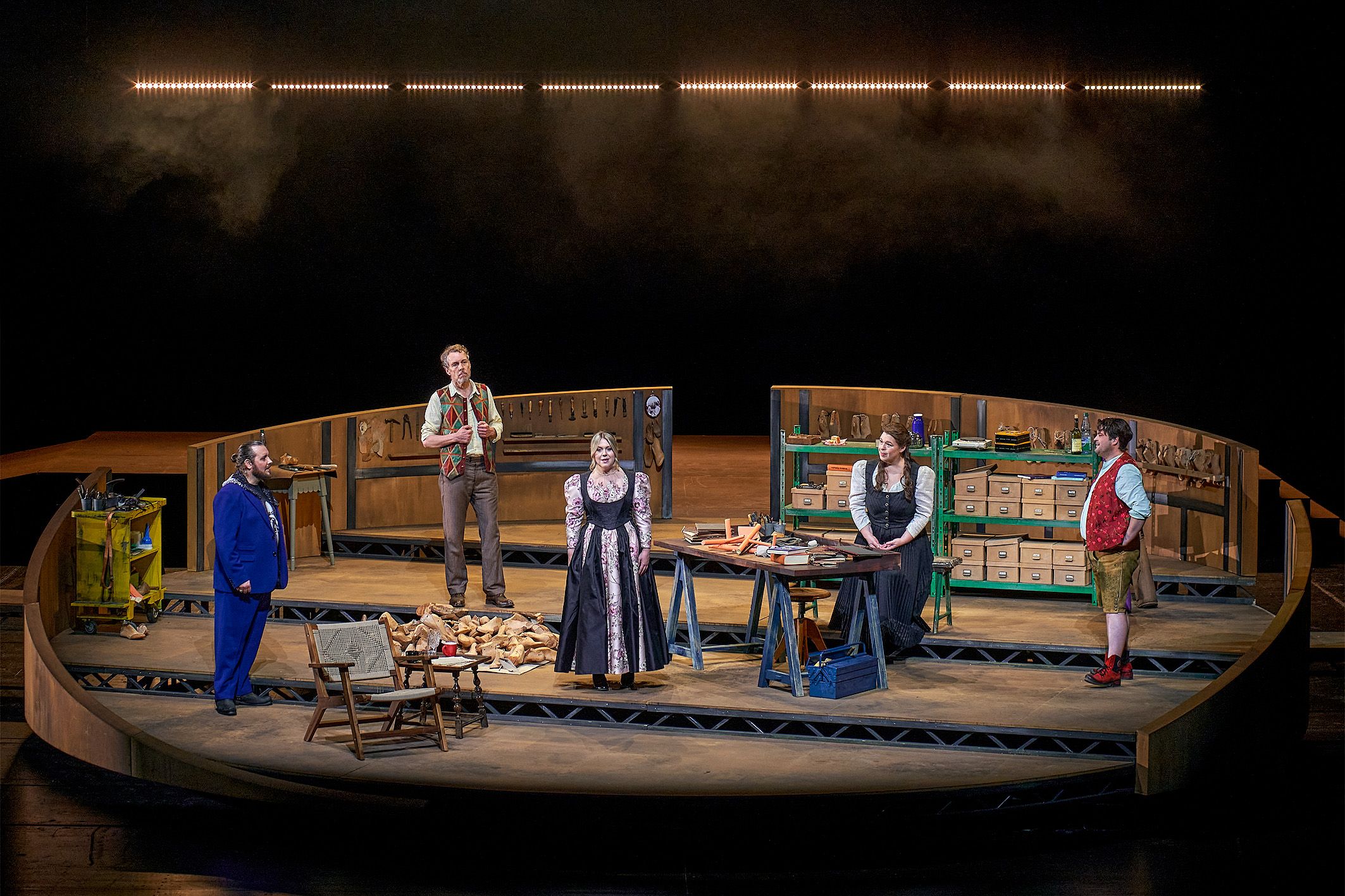
In this respect, Gatti’s direction of course reflected views and choices of the director Mathias Davids. In one of his all-too-few interviews, accessible in free press form to a wide public and given most probably to the Bayreuth Festival’s Leiterin Katharina Wagner, the German director refers to the work as «above all very German» and, while evading smartly the Jewish provenance of the Beckmesser character (gloriously enhanced by his predecessor Barrie Kosky) in favour of his other, equally evident, conventionally bureaucratic traits, he lightheartedly admits his far from unproblematic choice «against completely placing such a play in the present day» while retaining «no interest to uniformity» (?) in favour of «vibrancy and spectacle»!.
Now, if that is a way to plea for transferring the revival of a great work to another historical frame than its original one, it is ok with us, yet under the unavoidable condition of respecting the core of the work’s deeper references and of masterfully adapting the parallel vision of it to the original’s demands. Such have been the Bayreuth examples of the aforementioned Koskie production and the hugely refreshing earlier one by Prof. Katharina Wagner herself, much enjoyed by us back in her Bayreuth shared directorship’s early days, productions that both enhanced creatively the legendary traditional one by her late father Wolfgang Wagner that unforgettably initiated us to the work back in the mid-1980s.
All three, in their admirably different and illuminating ways, shared a common trait, that is vital to us in any revival of an allround masterpiece, such as «Die Meistersinger» indisputably is. It is called «consistency», signifying respect for the work’s core and deeper reflections, that brings an enhancement of its appeal without fragmentizing its aesthetic and, more important, its spiritual architecture. And it is this inconsistency of Davids’s production that annoyed us, in spite of graceful handling of certain colloquial situations or of organizing mass scenes, such as the splendidly done mid-summer pandemonium that crowned memorably the Johannisnacht of act 2. In this respect, we strongly oppose his option to contradict a «fundamentally sympathetic Sachs», supposedly transformed «into a German nationalistic agitator», by ignoring the final message of the work, that is, to our hopefully Wagner-orientated view, the value of collective initiatives to protect and cultivate high cultural ends, by silently reversing it «without changing a single note or word». Then, Wagner’ s appeal to an organized order remains actual, particularly in dark times similar to the ones invoked by Sachs, when global disorder and wars combine with social media supremacy, humanistic culture ceding to barbarism and democracy risking its own existence! The unspoken contempt of both Eva and Walther against the Mastersingers’ Guild and its values, as Davids lightheartedly proposes, does not conform to any freedom ideal but contributes to a dangerously nihilistic self-determination that eschews all too easily shared visions and ideals in favour of the Prince Harry and Megan kind of confusion.
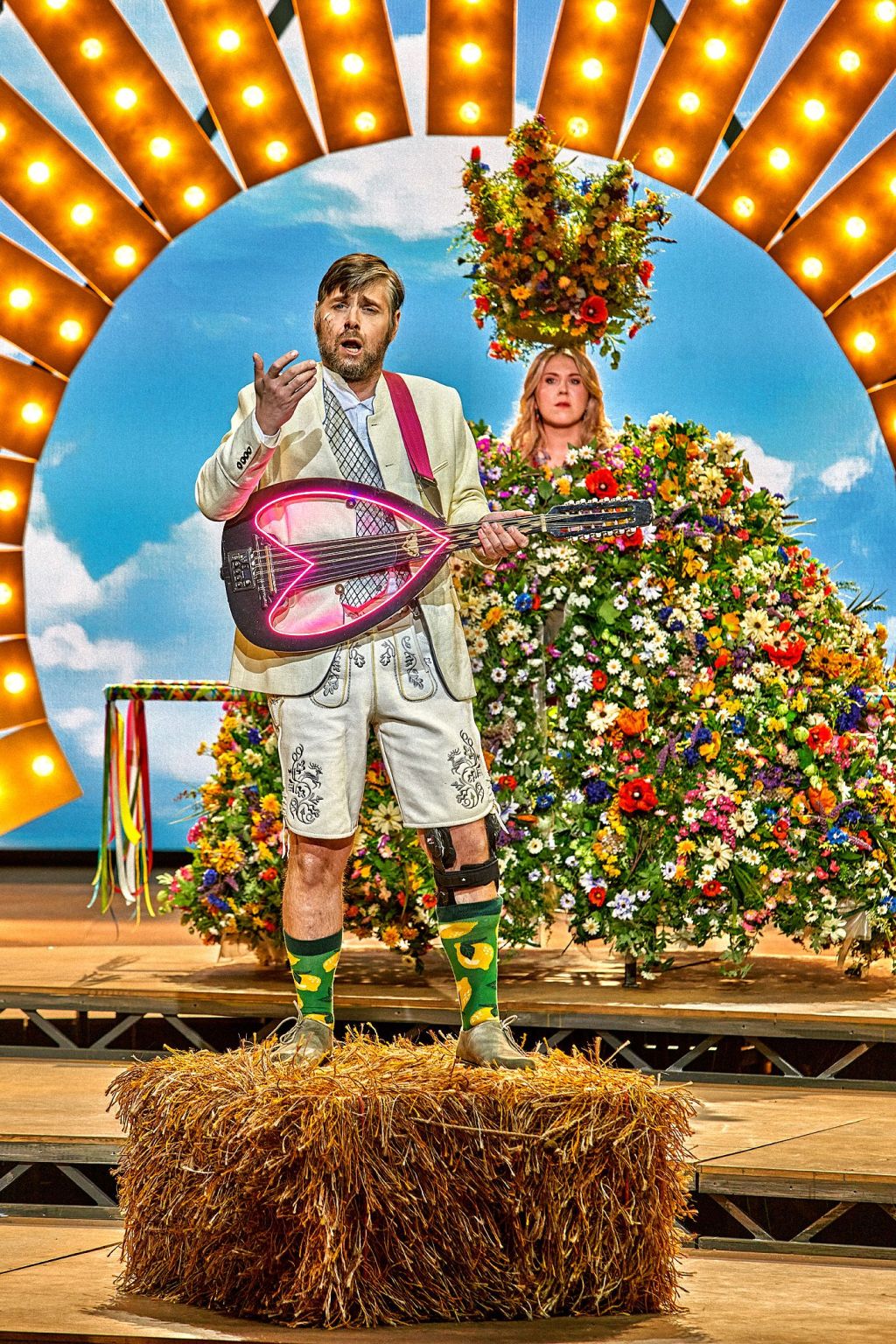
Whether one wants it or not, Hans Sachs is the central figure of the opera and one that should aspire authority as clearly as reflected by the characters and the masses that surround him. But, in spite of his well-known artistic integrity, Georg Zeppenfeld’s characterization lacked authority, not only due to the routine costumes by Susanne Hubrich (incidentally, nothing to complain about scenery by Andrew D. Edwards, especially in acts 1 and 2) but also because of the artist’s lack of vocal opulence, even in an acoustic as supportive as the Bayreuth one! Especially but not exclusively in act 1, his dialogues with Beckmesser and his other guild colleagues remained soft grained and uncharismatic. It seemed curious but his level of text emission and vocal production raised remarkably as well as suddenly for the splendidly enunciated Flieder- and Wahn monologues as well as certain of his main act 3 interventions, for which he most probably saved his voice. In this respect, Zeppenfeld’s Sachs conformed well with the equally underplayed but musically imbued Beckmesser of Michael Nagy, while Jongmin Park’s Veit Pogner proved a vocally imposing yet tight voiced bass, offering though singing of rare beauty and musicality in his act 2 father – daughter scene. We are not sure whether young and promising Christina Nilsson was an imposing last-minute Aida at the Met, but much of her singing as Eva was metallic, although she rose splendidly to the demands of act 3 quintet with singing of welcome delicacy and radiance.
On the contrary, soaring Belcanto singing was offered by American tenor Michael Spyres, a special baritenore voice (compare his splendid bass imitation during his delirious act 2 outbreak, a real collector’s item), who, fresh from Rossini feats on coloratura and similar grounds, has interestingly reached the Wagnerian shrine. Bringing with him an already clear enunciation of the text, he is an artist prone to achieve further interesting feats of Wagner appropriation in the years to come, although whether he will be able to confront the indelible memory of an -equally Bayreuth debutant- Klaus Florian Vogt as a splendidly revolutionary, visually and vocally blond Walther remains to be seen. Ideally, we would opt for still clearer text enunciation by tenor Matthias Stier as an otherwise solid David, in perfect accordance with Christa Mayer’s experienced Magdalene. A worthy team of Mastersingers and the memorable Nightwatchman of Tobias Kehrer were supported on a special level of interaction by the Bayreuth festival Chorus (mastered by Neuling Thomas Eitler de Lint) and Orchestra.
A somewhat faded Lohengrin from the past
Being in Bayreuth we revisited one of the last revivals of «Lohengrin» in yet another strange production, by Yuval Sharon, with scenery and costumes by the post-DDR pair Rosa Loy and Neo Rauch, that combines the plot of this romantic opera with electrification of Brabant, as the focal point before and after the chivalrous intervention of the title character. By this extra element the production serves to the enlightenment of the reasons why such a private dynastic dispute between two royal couples should be of so much public interest in view of the chorus’s generous part in the proceedings.
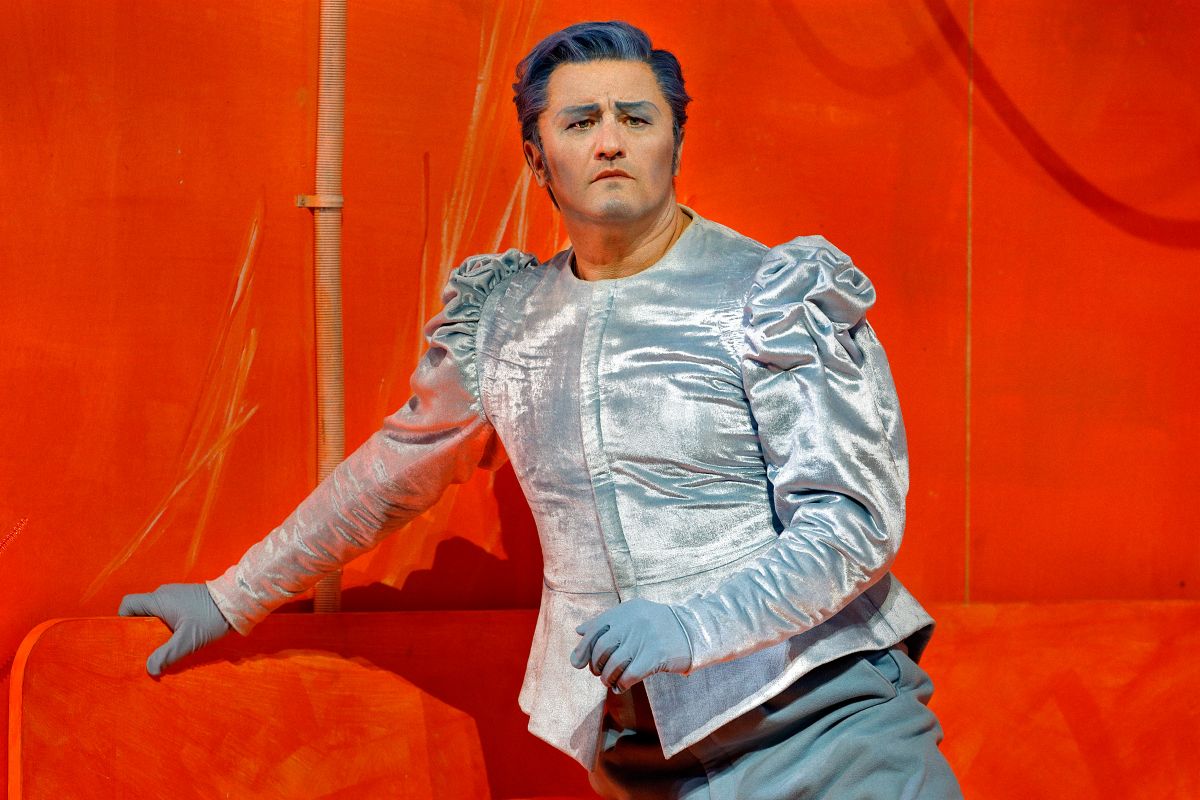
What remained from the participants of our first encounter with this production proved to be largely the better element of our new acquaintance. First and foremost, the iconic and -we dare say- already legendary Lohengrin of Polish star tenor Piotr Beczala, a real marvel of torrential, honey toned, musical, verbal and visual virility, furthermore acting with natural patrician restraint, nobly passionate in articulation of love and introvert in his complaint for Elsa’s undeserved ingratitude. The pure clarity of his German diction remains admirable and by its -all too rare- existence proves the internationally lowering standards of contemporary operatic reality in this crucial respect.
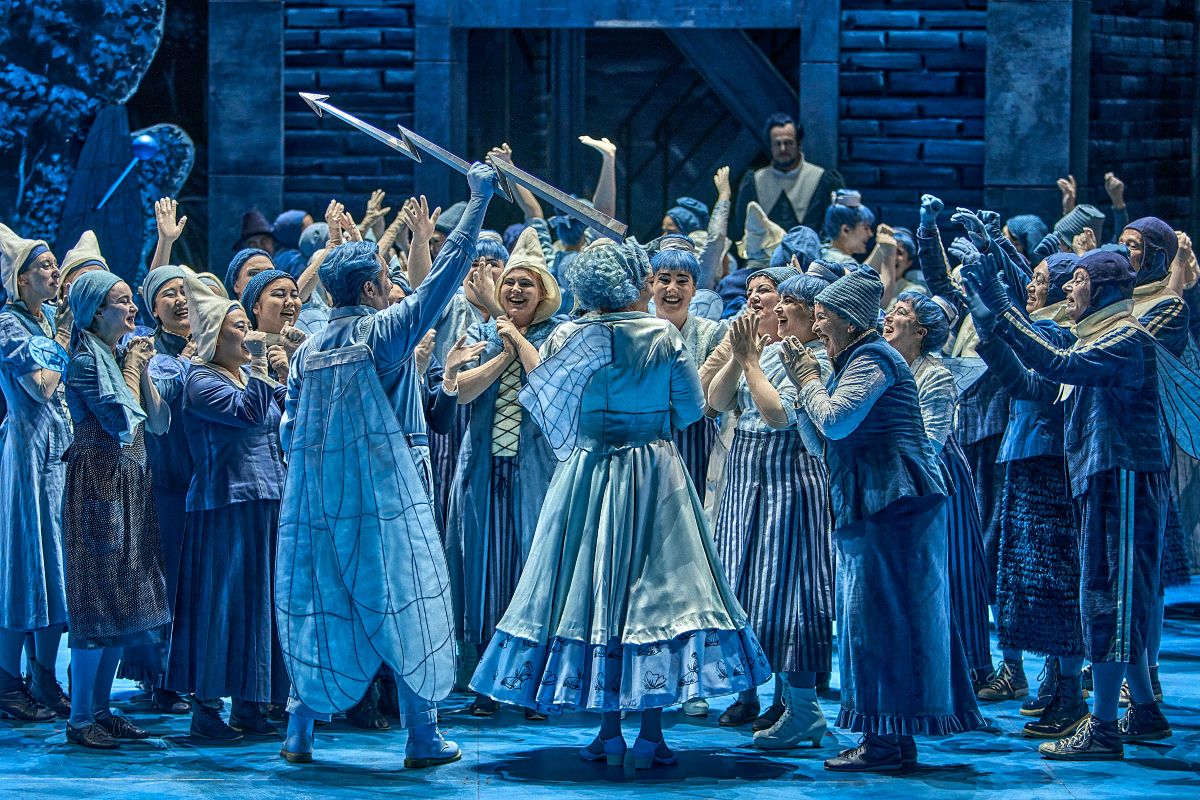
Next to him, only the imposing bass of Mika Kares, as King Heinrich der Vogler, managed to hold a vocal candle in this most Belcanto orientated of Wagnerian operas. With the possible exception of Anja Harteros, Elsa was hardly ever served in full accordance to its demands, at least in our more than 20-year Bayreuth experience. This was also the case with Elza van den Heever’s namesake, an artist with enough daring in her wonderfully strong impersonations, but hardly possessing the virginal yet radiant vocal opulence of the role, her top notes often sounding tedious and forced. Much the same applies to Miina-Liisa Varela, whose Ortrud simply does not -yet?- hold a candle to Waltraud Meier’s or Elena Pankratova’s vocally and histrionically memorable assumptions for this Nordic Lady Macbeth among anti-heroines. To make things worse, Count Telramund was assigned to Icelandic bass Olafur Sigudarson, a voice with enough Heft to ride over the Wagnerian orchestra, but with too little vocal opulence to establish any authority for a role that cries for it in the aforementioned Macbethian reference. Vocally, much more impressive proved Michael Kupfer-Radecky as a solid and assured Heerrufer des Königs!
The unevenness of the vocal cast influenced even as experienced and revered a baton as Christian Thielemann’s proverbially is, more evident in the first half of act 2, that the performance plodded uninterestingly, although the great Maestro compensated gloriously in the extended massive finale of this same act with Orchestra and -especially- Chorus rising to mesmerizing heights of magnificent tension!





